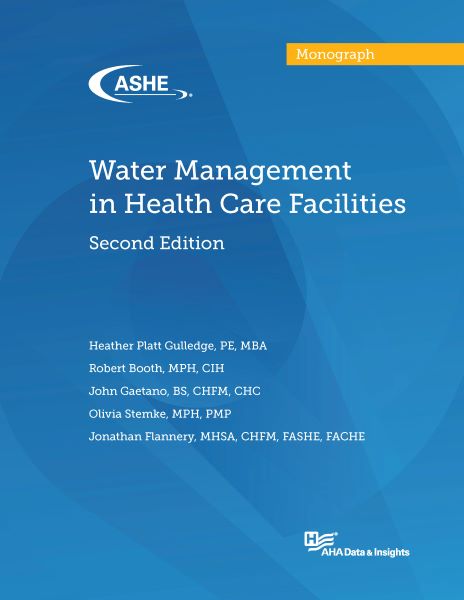Water Management in Health Care Facilities, Second Edition

by Heather Platt Gulledge, Robert Booth, John Gaetano, Olivia Stemke, Jonathan Flannery
This monograph provides detailed instructions on how to establish a water management program in health care facilities, including who to involve in the team, what areas need to be addressed, and how to prepare for ongoing success in mitigating threats. Appendices outline, compare and contrast the scope and requirements of various standards addressing water management pertinent to health care and various water treatment methods, as well as gives an overview of the most common pathogens affecting health care.
This monograph shares guidance to health care facilities managers, infection preventionists, risk managers and other professionals on how to develop a water management program that aligns with the latest water management standards, including ASHRAE Standard 188 and Standard 514. Without proper guidance, hospitals may take steps that are not required, may be unnecessarily costly, or are not helpful in reducing the threat from waterborne pathogens.
The second edition of this monograph provides a summary of the threat of waterborne pathogens in health care facilities; summarizes and compares key recommendations of relevant water management standards; outlines steps to achieve compliance through the creation of a water management plan; addresses maintenance procedures, monitoring strategies and emergency responses; and provides additional information on water quality testing methods, potential pathogens and possible response methods.
-
Introduction: Legionellosis and ASHRAE Standards 188 and 514
The Water Management Program
- Create a Team
- Map the Water System
- Identify Risks and Design a Water Management Plan
- Develop Standard Operating Procedures
Considerations for Water Safety and Function
Document and Communicate
Appendices
- Treatment Options
- Pathogens
- Risk Management Process
- Health Care Standards Comparison Matrix
- Water Quality Testing Methods and Parameters
| Members: Free PDF Access | Members can download a PDF of the entire monograph. Join ASHE today! |
| Download digital version | Catalog number: P055197 Nonmember: $35.00 |
| Order print version | Catalog number: 055198
|
Want more? Check out the Water Management Program Development Workshop

